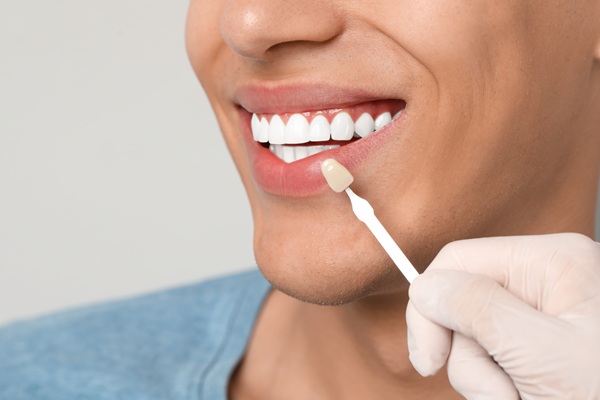3 Do’s and Don’ts of Dental Crown Care

A dental crown is a long-lasting dental restoration that helps restore the strength, appearance, and function of a severely damaged tooth. While these restorations are strong, proper dental crown care ensures their durability and prevents potential complications. The following guidelines can help you preserve your newly restored tooth and maintain your long-term oral health.
3 Do's of dental crown care
1. Practice good oral hygiene habits
A dental crown covers most of a tooth, acting similarly to a hat that covers the top of one's head. However, it does not completely remove the risk of tooth decay or gum disease. The natural tooth beneath the crown and the surrounding gum tissue require regular cleaning.
Similar to natural teeth, patients with a new crown should brush their teeth at least twice a day and floss once a day. They will need to pay special attention to the gumline around the crown to prevent plaque buildup and inflammation. Additionally, rinsing afterward with an antibacterial mouthwash can reduce bacteria that can lead to decay or infection.
2. Schedule regular dental visits
Routine dental visits allow the dentist to monitor the dental crown and the supporting tooth structure. They can identify potential issues when they first appear, such as:
- Looseness
- Poor crown placement
- Uneven wear and tear
- Increased sensitivity
- Cracks, chips, and other visible damage
- Misaligned bite
- Gum discoloration or recession
During these check-ups, the dentist can perform professional cleanings to remove plaque and tartar that brushing and flossing cannot remove.
3. Protect the crown from potential damage
Dental crowns are made from strong and durable materials. However, it is possible to damage them with excessive force. Fortunately, protective measures can reduce the risk of premature damage. For example, wearing a nightguard is beneficial for those who grind or clench their teeth, particularly while they sleep. Similarly, active individuals can wear a mouthguard during contact sports to protect their teeth and the surrounding tissues.
3 Don'ts of dental crown care
1. Ignore discomfort or changes
Patients with a new dental crown should not ignore any pain, increased sensitivity, or change in their bite. These symptoms may indicate an issue with the crown's fit, a structural problem with the underlying tooth, or complications involving the surrounding soft tissue. When patients schedule concerns with a dental professional promptly, they can prevent further damage to their crown, ensuring it continues to provide comfort and support.
2. Use teeth as tools
Using teeth to open bottles, tear packaging, or hold items places unnecessary stress on a dental crown and the surrounding natural teeth. This habit can cause the crown to loosen, fracture, or fall out. Natural teeth and dental restorations alike are designed for chewing food, not being used as tools.
3. Consume an unhealthy diet
Specific foods and beverages can shorten the life of a dental crown. Sticky foods, such as caramel or taffy, can pull at the crown and loosen it over time, leaving the underlying tooth and surrounding soft tissues vulnerable to decay. Hard foods may cause chips or cracks in the dental crown. Additionally, excessive consumption of sugary or acidic drinks increases the risk of decay in the natural tooth and surrounding teeth beneath the crown.
Learn more about dental crown care
A dental crown is a valuable restoration that requires thoughtful care to remain effective for as long as possible. Would you like more tips to care for your new dental crown? Call Lightway Family Dentistry today to learn more or to schedule a follow-up appointment.
Request an appointment here: https://lightwayfamilydentistry.com or call Lightway Family Dentistry at (864) 306-4488 for an appointment in our Easley office.
Check out what others are saying about our dental services on Yelp: Dental Crowns and Dental Bridges in Easley, SC.
Related Posts
Dental inlays provide an effective solution for restoring damaged teeth while preserving as much natural structure as possible. Unlike traditional fillings, dental inlays offer enhanced durability and precise fit, making them ideal for moderate tooth decay or damage. Dental inlays are a reliable intermediate option when a tooth requires more than a standard filling but…
Taking care of your family's dental health is important to help maintain your and your children's overall health and well-being. Regular visits to a family dentist can help identify and treat dental problems before they become more serious and require more intensive care. However, finding the right family dentist can be daunting, especially if you…
You should consider seeing a family dentist if you have children. This allows your entire household to get their dental needs met at the same time instead of driving all over town to drop each member of your family off at their dentist.A family dentist is a general dentist who spends most of their time…
Preventive dental care from your family dentist is a priority. After all, preventing infections and damage is easier than going through many dental treatments. Having this type of dentist will allow you to have the upper hand when it comes to your oral health. Here are the different preventive dental care options that you can…


